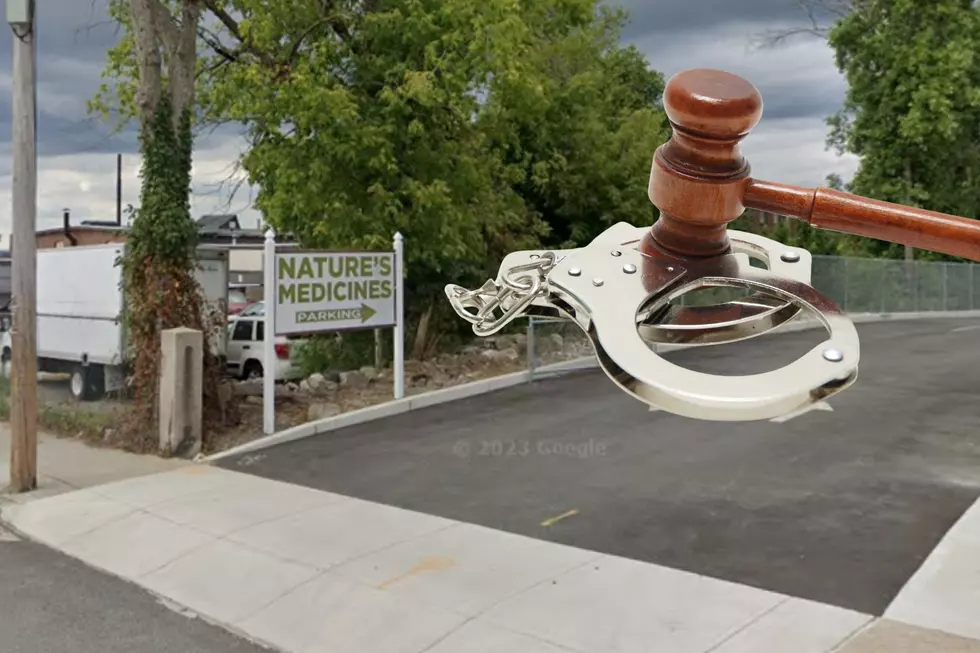City Council’s Removal Vote Is Beyond Their Legal Authority [OPINION]
Following a second round of federal indictments that reads like an audition script for a hilariously stereotyped crime boss, the Fall River City Council voted 8-1 to temporarily remove Mayor Jasiel Correia II from office during the pendency of his case. The council recognizes the irreparable harm Mayor Correia is doing to Fall River's reputation by remaining in office and is seeking to mitigate the fallout of Correia's alleged corruption.
The emergency order filed by Council President Cliff Ponte cited Section 3-8 of the Fall River City Charter, which allows the City Council to remove a mayor “Whenever, by reason of sickness or other cause, the mayor is unable to perform the duties of the office.” They have given the mayor until 5 p.m. Friday to hand his keys over to Ponte, who would serve as acting mayor in the interim. Correia vowed to continue serving as mayor in spite of the vote, which he argued was "non-binding."
He's probably right.
The legal reasoning for the council's authority hangs on the "other causes" language of the ordinance, which they view as a catch-all that can include this particular situation. They argue that the mayor's potential inability to answer certain questions about the City if he were to be summonsed to a hearing by the council due to his Fifth Amendment right against self-incrimination, and a court order not to associate with certain individuals involved with the case make him "incapacitated" and unable to fulfill his mayoral duties.
As the City of Fall River’s Corporation Council Joseph Macy along with Mayor Correia’s personal attorney pointed out the last time this was tried after the Correia's first indictment, the city council's rationale is a misapplication of the rule. Applying this ordinance is a matter of statutory interpretation, a practice used by lawyers and judges to determine the purpose and scope of existing laws. Often, a statute or ordinance will be looked at in its entirety to determine the meaning that the language of the text will bear as a matter of law.
Macy argues in a three-page written opinion that “a common sense, plain language reading of the charter would apply this clause to physical or medical disability or geographic impossibility.” Meaning, Jasiel would either have to be incapacitated by some type of mental or physical impairment or physically unavailable in order for the city council to properly make a vote under Section 3-8 of the charter. Thus, using "other causes" as a catch-all to include Correia's indictments is playing fast and loose with the charter's authority.
The nail in the coffin to the council's argument can be found in an expansive reading of the charter in Section 9-13. As Correia’s personal attorney Mark Berthiaume points out in a letter addressed to the Fall River City Council last October, “[a]n elected official that has been convicted of a state or federal felony while holding office shall be deemed to have vacated the office.” This distinction clearly demonstrates that removing an elected official for being charged with a felony without yet being convicted is clearly outside the scope of the city council’s power designated by the charter.
Berthiaume also points to the legal precedent set in Turner v. City of Boston 462 MA 511 (2012) held that the charter for the City of Boston did not have the authority to remove City Councilor Charles Turner, as he had not been sentenced for the crimes he was convicted of nor were these crimes related to his duties in office. There is a provision under state law to suspend government officials who have been indicted for crimes related to their duties in office by the “appointed authority.” Berthiaume posits, however, that this is inapplicable as the Fall River City Council is not the “appointing authority” for the Office of the Mayor. The only applicable measure in the charter to remove the mayor is in Section 8-5, which the mayor famously survived.
The only city councilor who appeared to recognize that the council was acting outside the scope of its authority was Steven Camara, who argued:
“He can resign. He can be convicted, and that is yet to be determined. He can be removed by recall. ... Or he can be incapacitated, and that’s what this council is voting on. Last time I saw him, he was very much capacitated. ... The city is functioning...I will take the uncomfortable position that it is wrong to do something that is not within our jurisdiction.”
In anticipation of a legal battle regarding this vote, the Fall River City Council has hired outside legal counsel to represent them on this matter. Whether it works or not, the city council may view the vote as a necessary protest of a mayor that has betrayed the public trust. But it seems that the only way to remove the embattled mayor from office in the immediate future is to mobilize a base from the mounting discontent at the mayor's abuse of power.
Marcus Ferro is an attorney practicing in New Bedford and a weekly contributor to The Chris McCarthy Show on 1420 WBSM. Contact him at marcusferrolaw@gmail.com. The opinions expressed in this commentary are solely those of the author.
More From WBSM-AM/AM 1420

![Fall River Dog Is the Ultimate Adventure Buddy [WET NOSE WEDNESDAY]](http://townsquare.media/site/519/files/2024/04/attachment-Untitled-design-2024-04-24T063451.295.jpg?w=980&q=75)







